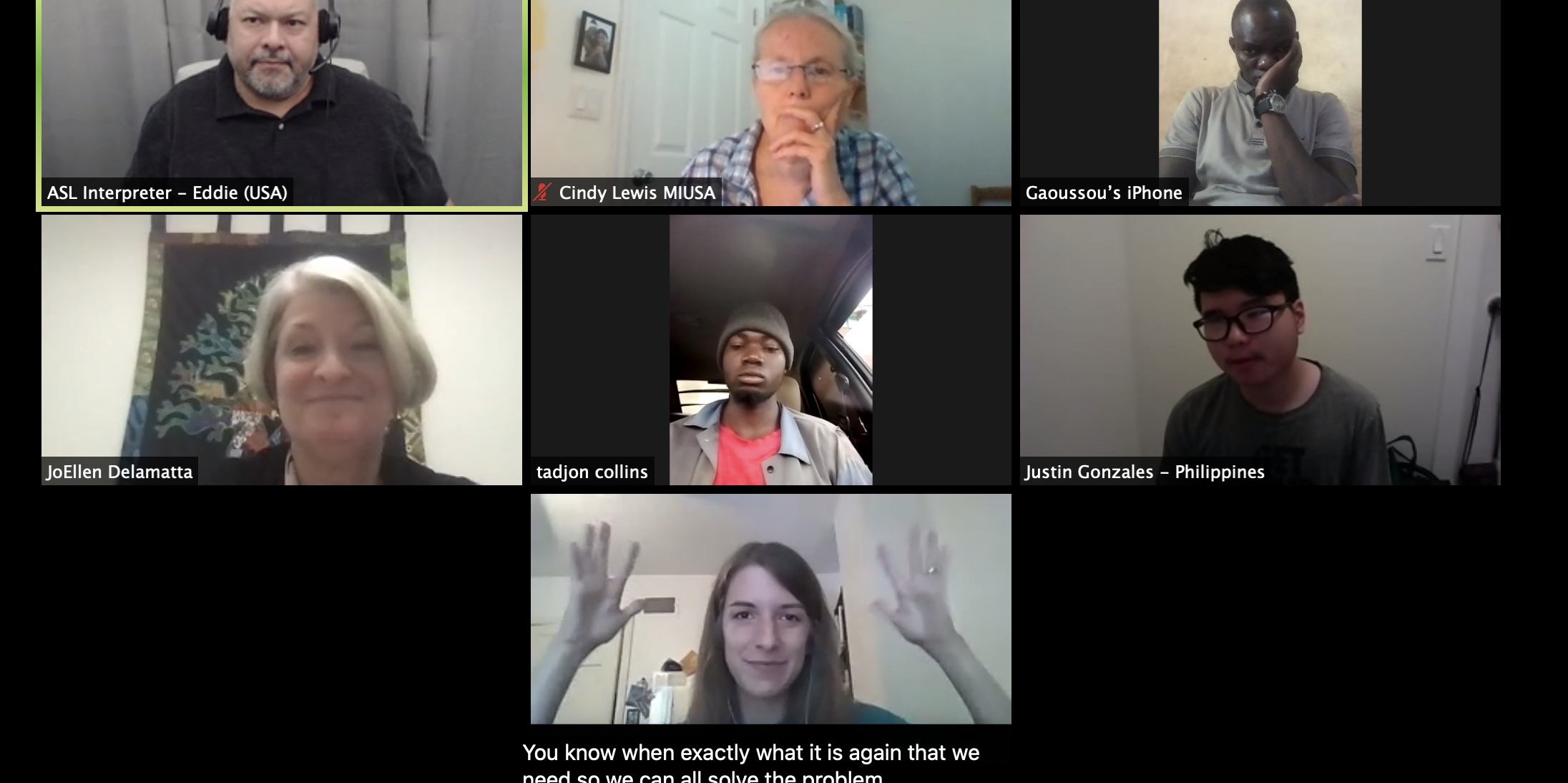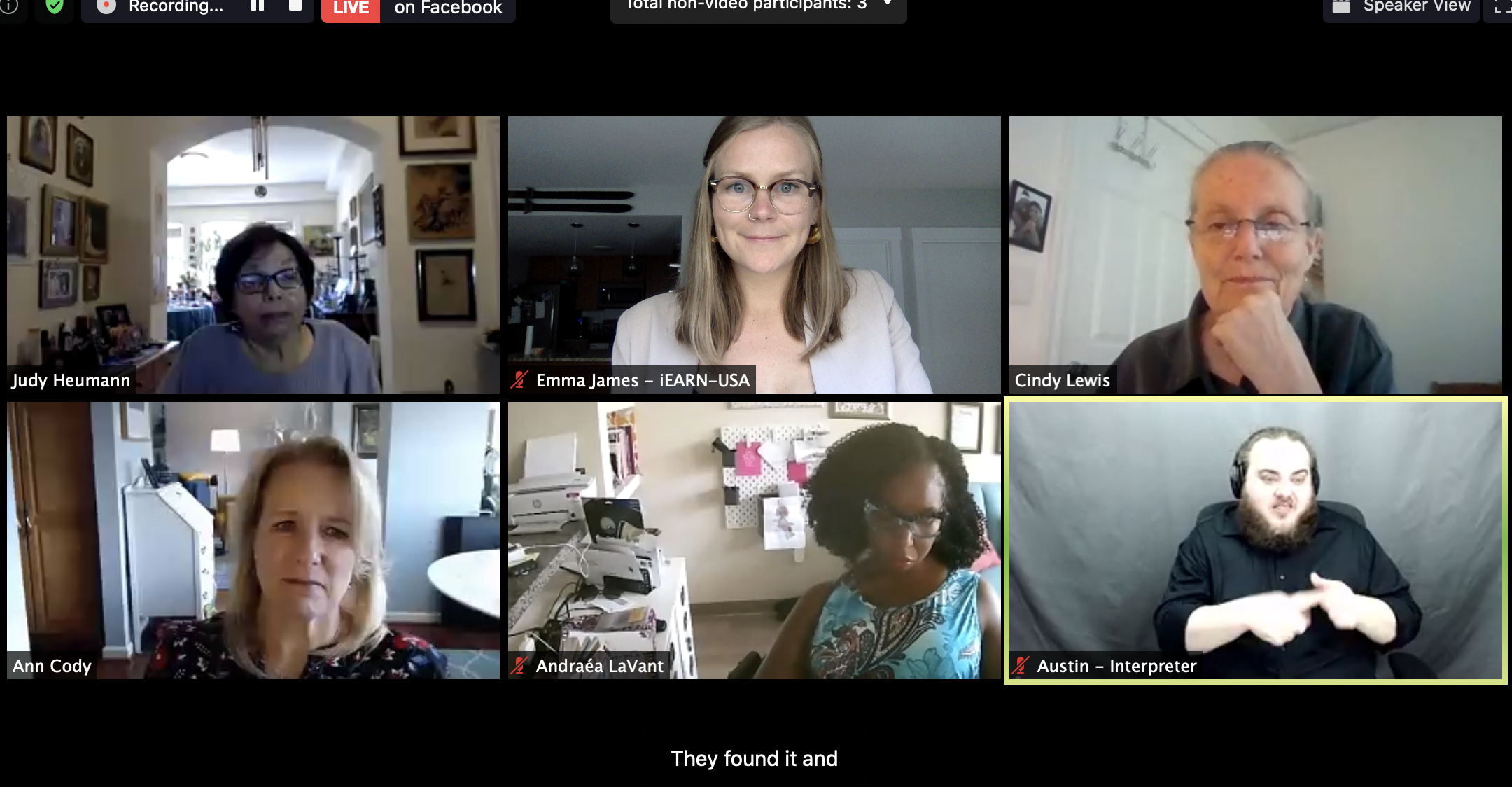iEARN-USA Implements Crip Camp Workshop
Posted on August 28, 2020

In collaboration with the Kennedy-Lugar Youth Exchange and Study (YES) program, iEARN-USA hosted a virtual Crip Camp Workshop, from August 17-21 in honor of the Americans with Disabilities Act 30th Anniversary. 2020 marks 30 years since the American with Disabilities Act (ADA) was signed into law. This landmark legislation prohibits discrimination based on disability and increases the opportunities and access for persons with disabilities. The law was written and passed to ensure that persons with disabilities have the same rights as other Americans.
The Crip Camp Workshop, Part I, centered around Netflix’s 2020 Crip Camp documentary produced by the Obama’s Higher Ground Production and winner of the 2020 Audience Award at Sundance. The film narrates the story of youth at a disability camp who became activists for the disability rights movement and fought for accessibility legislation. The Americans with Disabilities Act was passed in large part because of activists like the ones depicted in the film, Crip Camp.
The Crip Camp Workshop included a series of events centered around the film including a film discussion, keynote panel, and fireside chats with experts in the field of disability rights and advocacy. More than 450 participants from 72 countries registered for the workshop.
The workshop kicked off with the Crip Camp Cinema Circle moderated by iEARN-USA. Participants watched various clips from Crip Camp: A Disability Revolution and discussed central themes of the film and the connections between challenges presented in the film and the issues facing the disability community today and in their own community. For example, one of the major themes of Crip Camp is the fight to make more spaces in the United States more broadly accessible. Participants discussed whether they have encountered a space that was inaccessible to them or someone else. With such a diverse range of participants and countries represented, the conversation was eye opening in terms of differences and similarities.
One of the most anticipated sessions of the workshop was the Keynote Speaker Panel, held on August 18. The YES program was delighted to introduce some of the leading disability rights advocates and civil rights leaders as panelists. Judy Heumann, an American disability rights activist and key figure in the film Crip Camp; Ann Cody, who oversees the International Disability Rights portfolio at the U.S. Department of State; and Andraéa LaVant, co-impact producer of Crip Camp and founder of LaVant Consulting Co. all joined the panel to discuss the grassroot activism that is so prominently featured in the film and how more communities and groups can encourage civic engagement and activism. Judy Heumann and Ann Cody shared about their initiatives such as the International Disability Rights portofolio at the U.S. Department of State and the World Institute on Disability. Through their experiences, Heumann and Cody shed light on where the United States stands in the global fight for accessible spaces. The panelists also spoke in detail about intersectionality for people with disabilities. Participants from around the world were able to submit their questions to the panelists, and hear advice, wisdom, and encouragement from the panel. Watch the recording of the video below!

On Thursday, August 27, iEARN educator JoEllen Delamatta led a session on “Crip Camp and My Community.” This session, which was based on the iEARN framework, guided participants to take a critical look at their own society, consider disability rights in their communities and country, and connect with peers over similarities and differences. Participants connected with other youth about the challenges and issues facing the disability community and drew similarities between scenes in Crip Camp and their own societies. The participants discussed the obstacles that disabled students face in their communities and how they can work towards making schools more accessible and inclusive. Together, the participants brainstormed a variety of project ideas that they could implement in their communities to help advocate for people with disabilities.
Later in the week, participants had the opportunity to connect with Andraéa LaVant and Mobility International USA during fireside chats on self-advocacy and global disability rights. These sessions served as an opportunity for workshop attendees to engage directly with the experts, exchange dialogue with other workshop attendees, and share about their own communities and contexts.
